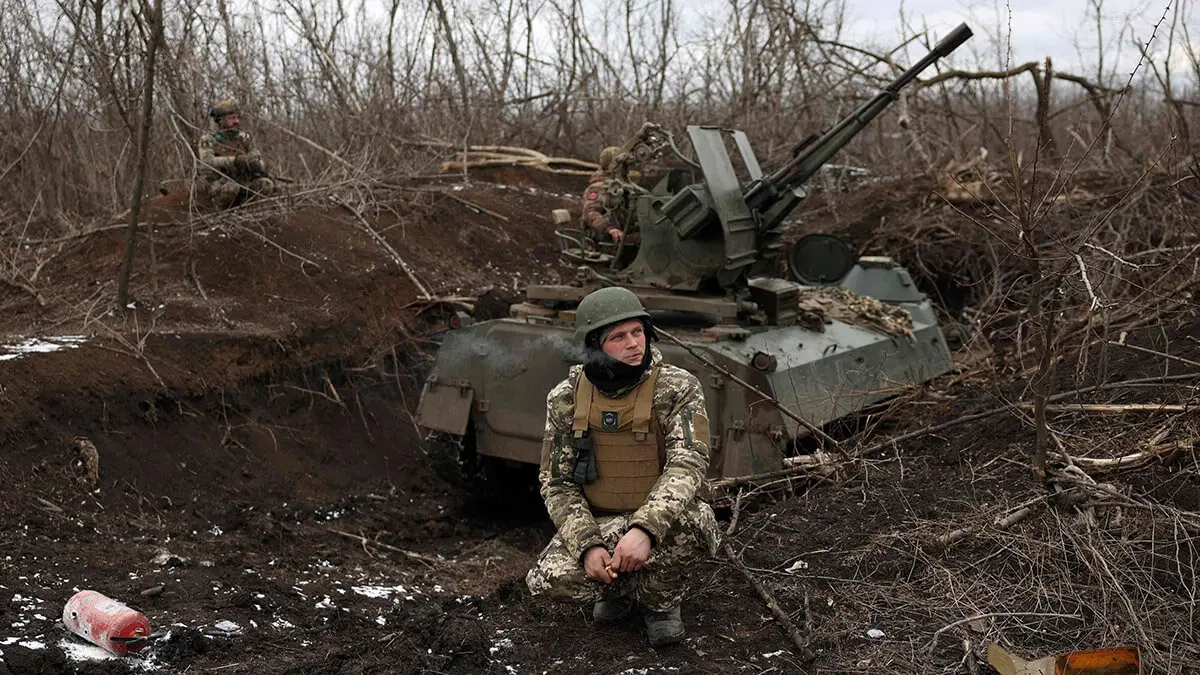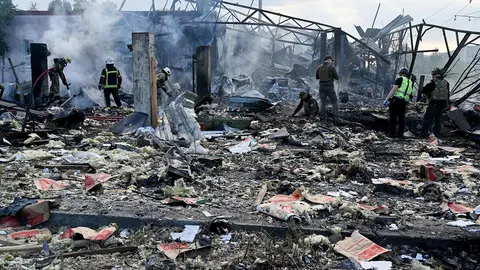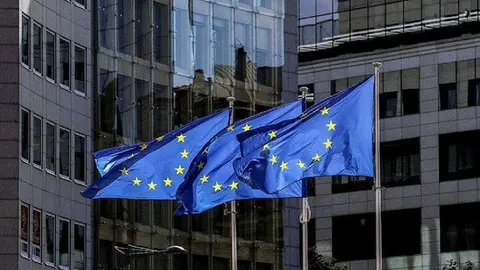Spain has a "total and absolute" threat

Coinciding with Putin's presidential re-election, the Minister of Defence, Margarita Robles, has alerted Spaniards to the "total and absolute" threat posed by Russia to the European Union. She warned that "the situation in the world is very complicated". "I would like to call attention to Spanish society because sometimes I have the perception that we are not aware of the enormous danger that exists at the moment. And not only in Ukraine; also in Gaza and in the Sahel, where I am very pessimistic about the situation", she said. The remarks follow a conversation with her US counterpart Lloyd Austin.
The minister's statements, which did not make headlines, expose a stark reality that has been in force for several years, little known to the Spanish people, which describes the scenario of the external component of the threat to Spain's national security, which overlaps with the internal component of separatism.
A familiar scenario
After the Cold War, European nations largely allowed their militaries to atrophy. The traditional focus of military activity in Europe migrated from a hypothetical conflict against a similar adversary to other types of operations such as expeditionary crisis management and counter-insurgency operations. With the exception of the Balkans, these operations were also conducted outside the NATO area; the possibility of a major war on the European continent was not considered.
As the risk to Europe has increased, US attention has focused primarily on the Indo-Pacific. Despite the invasion of Ukraine, Washington's strategy continues to prioritise China. The need for the United States to provide military capabilities to defend Europe, support allies in Asia and maintain other global commitments, such as in the Middle East, places an enormous responsibility on Washington to share it with a greater European contribution to assuming its own responsibilities.
Russia's invasion of Ukraine in February 2022 triggered the bloodiest war in Europe since the Second World War and raised important questions about the role of the United States in Europe and Europeans at home. NATO played the leading role in the West. It is easy to admit that, in 2022, to counter Russia's invasion of Ukraine, Washington's strategy left something to be desired and Europe's was not even conceivable. The West's justified objective in Ukraine was to help thwart Putin's attempt to overthrow the Kiev regime. This was achieved in a matter of months by the Ukrainian army, with the help of Western weaponry and logistical support. At no point did NATO resort to assassinating the war in order to avoid reckless escalation into a continental conflict.
But as the conflict in Ukraine has reached what appears to be a military stalemate, NATO's approach appears to be starting to lack coherence. The conflict goes into lethargy; Ukraine's victory seems to have been an option never contemplated. Doubts loom over the next step. What was once a Russia-West conflict is now a matter of helping Ukraine. NATO Secretary General Jens Stoltenberg enigmatically declares that it is necessary to "stay the course", without saying what this means, while Chancellor Olaf Scholz has long been cautious, with an SPD with Ukrainian partitionist tendencies. The same goes for much of US public opinion, while Secretary of State Antony Blinken rambles on with comments such as 'the West must ensure that Russia's war 'remains a strategic failure'.
The rush
On 14 March, in a somewhat strident tone, French President Emmanuel Macron began to channel aloud what many EU leaders, policymakers and military officials have been thinking since the failure of the Ukrainian counteroffensive: does Europe have the peacekeeping capacity to be ready for war? The French president added: 'If we leave Ukraine alone, if we let Ukraine lose this war, then surely Russia will threaten Moldova, Romania and Poland'.
Macron's 'conversion' from dovish to hawkish in the face of Russia's invasion of Ukraine has been welcomed by Eastern Europeans, who have long called for this change. They are increasingly worried about what a Russian breakthrough this spring could bring.
Russia is taking its aggression to a completely different level and the Kremlin announced that, in recent months, it had "taken a markedly tougher line", placing the Russian economy on a permanent war footing; intensifying repression of domestic opposition and escalating cyber-attacks on European countries.
The coming weeks and months will tell to what extent Macron's new alarmism and positioning is purely political and to what extent it is real engagement. The problem is that too much opinion is reacting badly to his person and proposals. The mood culminated in an emergency three-way meeting with German Chancellor Olaf Scholz to mend the increasingly fractured relations, joined by Polish Prime Minister Donald Tusk to establish the obligatory common front with Eastern Europe.
After the meeting, the three components of the so-called 'Weimar Triangle' said they were "united" in their goal of "never letting Russia win and supporting the Ukrainian people to the end".
Two years after Russia invaded Ukraine on 24 February 2022, the Ukrainian front line has frozen, a tactical stalemate, with neither side having enough soldiers, weapons and especially ammunition to take the lead. European governments had previously said "no" to lethal aid, battle tanks, missiles and fighter jets. But all of these have already been delivered, or are in the process of being delivered.
Priorities
Minister Robles' overdue statements are a wake-up call that must be met with a clear, forceful and timely response. The importance of national security is indisputable and must therefore be given absolute political priority. Spanish citizens have their say; their national cohesion is essential.



